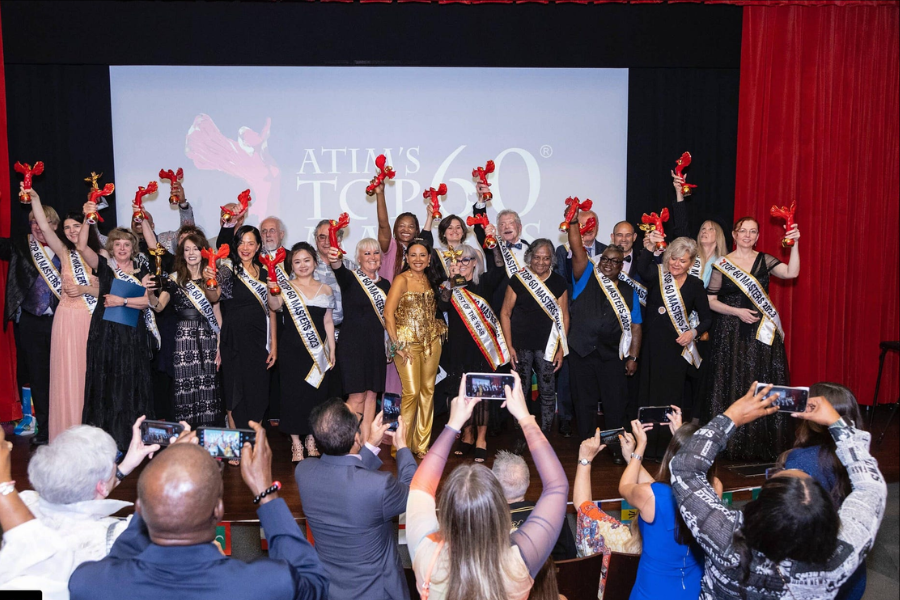The Art of Recognition: Celebrating Excellence with Award Ceremonies
Table of Contents
- Historical Significance of Awards
- Why Recognition Matters
- Different Types of Awards
- Planning an Award Ceremony
- Choosing the Right Award
- Successful Award Ceremony Examples
- Future Trends in Employee Recognition
- Additional Resources
Award ceremonies are a powerful way to celebrate excellence, recognizing individual and collective achievements across various fields. They boost morale, inspire others, and foster community and pride. Through thoughtful presentation and meaningful acknowledgment, these events highlight dedication, talent, and hard work. Whether in business, arts, or sports, award ceremonies serve as platforms for appreciation, reinforcing values of perseverance and commitment while motivating recipients and audiences to strive for continued success.
Historical Significance of Awards
Awards have a long-standing history, originating in ancient civilizations where acts of bravery and significant accomplishments were honored. In ancient Greece, victorious athletes in the Olympic Games were crowned with olive wreaths, symbolizing honor and glory. Similarly, during medieval times in Europe, knights were bestowed with medals to recognize their bravery and courage. As societies evolved, so did the tradition of awarding individuals for exceptional achievements. Today, awards encompass various fields, from academia and science to entertainment and sports, as markers of success and dedication.
This historical perspective enhances the significance of modern award ceremonies, highlighting the enduring value of recognizing excellence through symbols like crystal awards. By appreciating this evolution, we gain deeper insight into how awards connect past and present achievements across various cultures and industries.
Why Recognition Matters
Recognition in the workplace is vital for boosting morale and improving productivity and retention. According to a Gallup report, employees who feel appreciated are more engaged and stay longer.
When employees feel valued, they become more motivated and perform at a higher level. This creates a positive feedback loop where recognition boosts motivation, which drives productivity. Organizations foster a culture of appreciation by acknowledging employees’ hard work through awards and recognition programs. This enhances team morale and boosts individual performance, creating a more positive and healthy work atmosphere. Consistent recognition can lead to long-term positive effects on employee engagement and retention.
Different Types of Awards
Awards come in many forms—trophies, plaques, certificates, and medals, each offering unique ways of honoring achievements. Trophies are often used in sports and represent a tangible triumph of skill and effort. Plaques are frequently used for corporate milestones and team achievements, serving as a lasting reminder of accomplishments. Certificates are versatile and can be customized for any occasion, providing a formal yet personal touch. Medals, known for their strong historical roots, are often used in military and academic settings. For instance, crystal awards are remarkably esteemed for their elegance and clarity. They are often used in high-level corporate settings to honor significant achievements and are valued for their aesthetic appeal.
Planning an Award Ceremony
- Set Clear Objectives: Determine the purpose of the awards and what you aim to achieve. This could range from improving employee morale to recognizing significant milestones or achievements.
- Budget: Allocate funds for venue, awards, catering, and other expenses. A detailed budget will help ensure everything runs smoothly without financial hiccups.
- Venue: Select a space appropriate for your event’s scope and formality. Whether it’s an intimate gathering in a conference room or a grand ceremony in a banquet hall, the venue should reflect the event’s tone.
- Agenda: Prepare a detailed program that includes speeches, award presentations, and entertainment. A clear agenda ensures the event runs on time and engages the audience.
- Invitees: Make a guest list and send out invitations well in advance. Personalizing the invitations can add a special touch and show recipients their presence is highly valued.
Choosing the Right Award
Selecting the correct type of award can be as critical as the ceremony itself. Different materials convey different messages. For example, crystal awards exude prestige and sophistication, making them ideal for high-level recognition. The weight and transparency of the crystal can symbolize clarity, purity, and durability. On the other hand, metal awards convey strength and solidity, which are suitable for achievements in areas requiring endurance and resilience. Wood awards offer a warm, natural feel and represent growth and sustainability. Carefully considering the qualities you wish to convey through the prize can make the recognition more meaningful and memorable.
Successful Award Ceremony Examples
Several prestigious award ceremonies have established benchmarks for these events’ impact. The Oscars, for example, are globally celebrated for their flawless execution, showcasing a night of glamour, artistry, and prestige that captivates millions of viewers worldwide. This event highlights cinematic achievements and elevates the status of those recognized, underscoring the significance of the awards themselves. Similarly, corporate awards have gained prominence to celebrate professional excellence, symbolizing success in the business world. Recognizing top performers fosters a culture of achievement, motivating employees and enhancing company morale. These examples demonstrate how a well-organized award ceremony can elevate an organization’s image, inspire its members, and create lasting impressions in a broader audience.
Future Trends in Employee Recognition
The employee recognition landscape is evolving rapidly, particularly with the rise of technology. Virtual awards and digital badges are gaining popularity, offering a modern, flexible way to celebrate achievements. These digital formats are highly shareable across online platforms, making them especially appealing in tech-driven work environments. Virtual award ceremonies have emerged as practical and inclusive alternatives to traditional, in-person events as remote work expands. These ceremonies allow for global participation, breaking down geographical barriers and ensuring that employees feel acknowledged and appreciated no matter where they are. Customizable platforms also enhance engagement by allowing interactive elements, such as live voting or chat functions, making these events more personal and dynamic. By embracing these virtual options, companies can foster a strong sense of connection and recognition among their workforce.
Keep an eye for more news & updates on GlamourUer!






